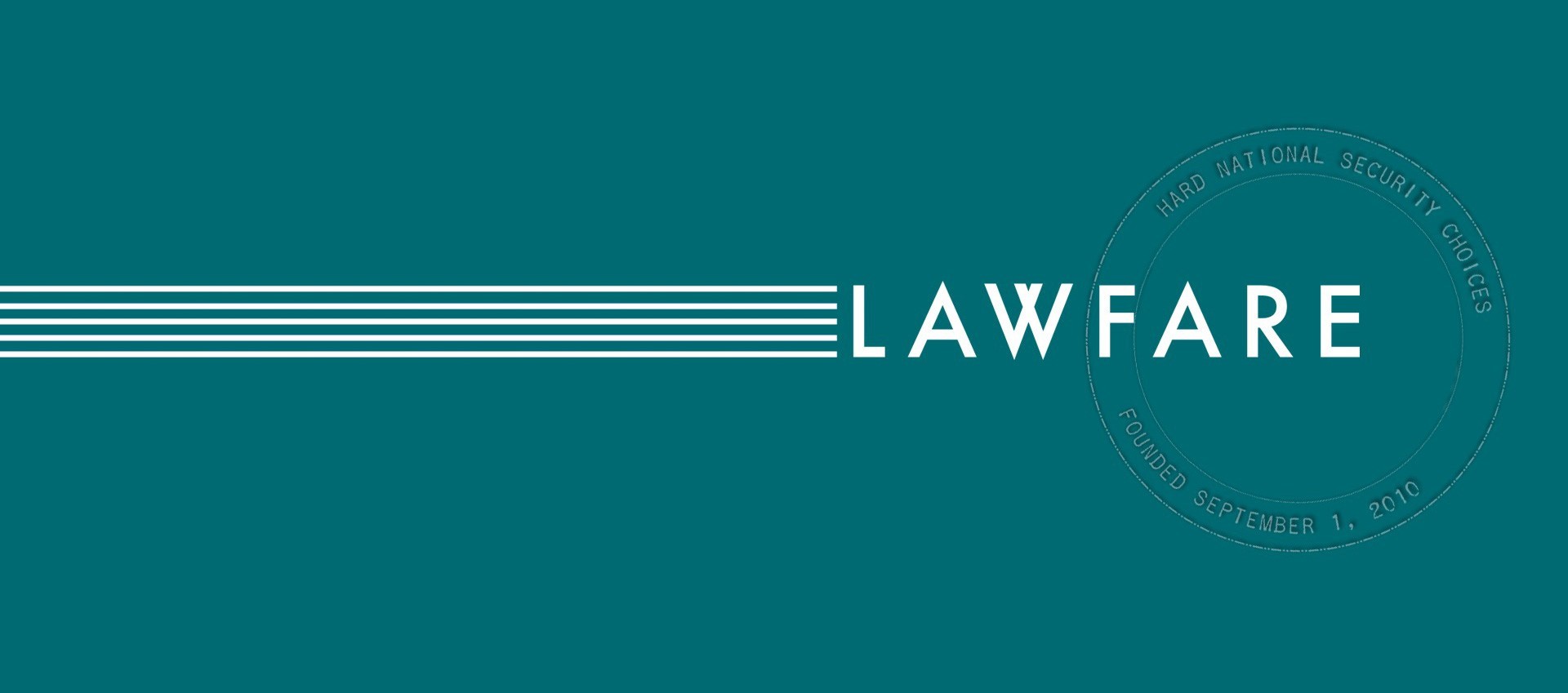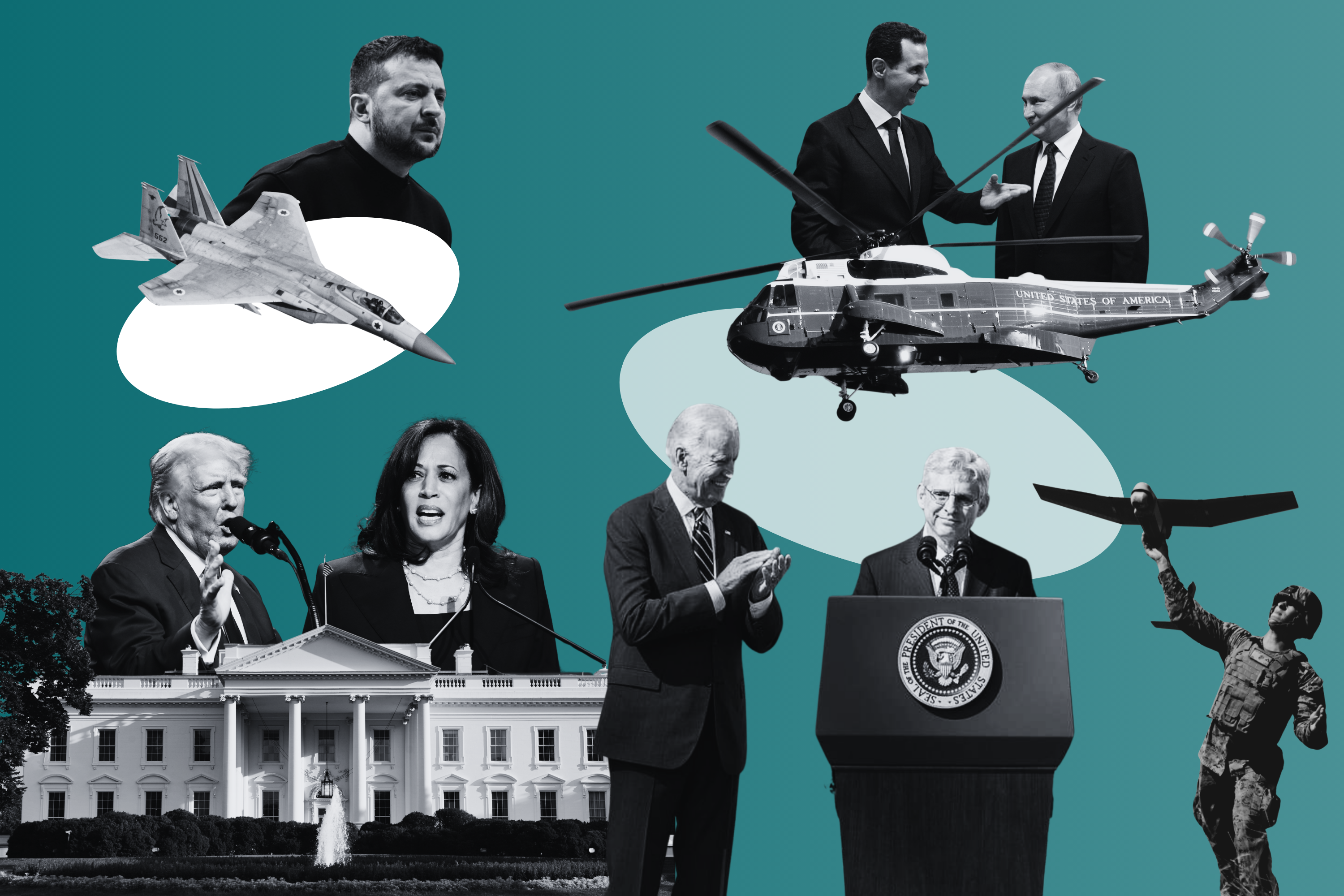The Week that Was: All of Lawfare in One Post
After weeks dominated by talk of surveillance reform, Lawfare is slowly returning to its usual eclectic self.
Wells flagged Guantanamo detainee Al Rahabi’s hearing with the Periodic Review Board.
Published by The Lawfare Institute
in Cooperation With

After weeks dominated by talk of surveillance reform, Lawfare is slowly returning to its usual eclectic self.
Wells flagged Guantanamo detainee Al Rahabi’s hearing with the Periodic Review Board. There wasn’t room for him to attend the closed circuit broadcast, so he linked to Daphne Eviatar's coverage at Just Security and Charlie Savage’s story in the New York Times.
After President Obama’s State of the Union address, Ben excerpted the paltry portion of the speech that related to national security issues. As the post-SOTU punditry focused on the President's turn to executive authority in the face of a do-nothing Congress, Jack reflected on this pivot and explained that the return of John Podesta to the Whit House fit well in this context.
Paul linked to a short essay by David McMahon of SecDev urging us to “think big” when theorizing and conceptualizing cyberspace. And he drew our attention to the Supreme Court’s ruling in Air Wisconsin v. Hoeper, dismissing the lawsuit of a passenger seeking to sue the airline that reported he was danger to the TSA. Paul observed that the Supreme Court's application of a federal law granting immunity for good-faith allegations about dangerous air passengers upheld precisely the values that Congress sought to protect.
On the drones front, Ben brought us a brief essay from Lt. Col. Matthew Atkins pushing back against those who argue that drones have made combat less personal. Atkins argues that the identification and targeting of specific individuals through remote killing actually makes warfare more personal, and carries unique stresses and traumas for drone operators and decision-makers. On the level of policy, John reflected on the some senators’ attempt to use appropriations to prevent changes to the drone program He wondered why Congress hasn’t been more forceful about using its legislative and appropriations power to control intelligence programs.
Of course, we couldn’t fully escape discussion of FISA reform and Mr. Snowden: Wells reflected on his and Ben's and Orin's concerns about President Obama’s decision to require FISC approval of metadata queries. Ultimately, he's decided that the concerns were exaggerated, and that the FISC will likely act with deference to President Obama’s announced policy change.
Peter Margulies defended 702 collection as consistent with international norms, and insisted that the American surveillance program actually contains greater safeguards than their European counterparts. American officials therefore have nothing to fear from accepting the extraterritorial applicability of the ICCPR, especially if they implement modest minimization reforms and create independent privacy advocates.
Although he doesn’t know much about the British legal system, Ben flagged the release of an influential legal opinion finding a great deal of British intelligence activity unlawful. And Wells linked to a District Court ruling in United States v. Daoud holding that the government must turn over FISA documents to a cleared defense counsel.
Joel Brenner cataloged some of the havoc that Snowden has wreaked on the United States’ defensive capabilities, and he explains that the public benefit from the metadata debate is simply a drop in the bucket compared to the damage caused. As if on cue, Ben noted that a pair of Norwegian politicians have nominated Ed Snowden for the Nobel Peace Prize.
We also had a fairly robust week of foreign affairs: Ritika gave us our latest podcast, a conversation between Brookings senior fellow Bruce Reidel and Foreign Service Officer Yaniv Barzilai, author of 102 Days of War—How Osama bin Laden, Al Qaeda, and the Taliban Survived 2001. The two discussed Barzilai's book, and listeners may be surprised by precisely how close American soldiers actually were to Osama bin Laden. For those who missed it, here it is:
Yishai Schwartz is a third-year student at Yale Law School. Previously, he was an associate editor at Lawfare and a reporter-researcher for The New Republic. He holds a BA from Yale in philosophy and religious studies.





